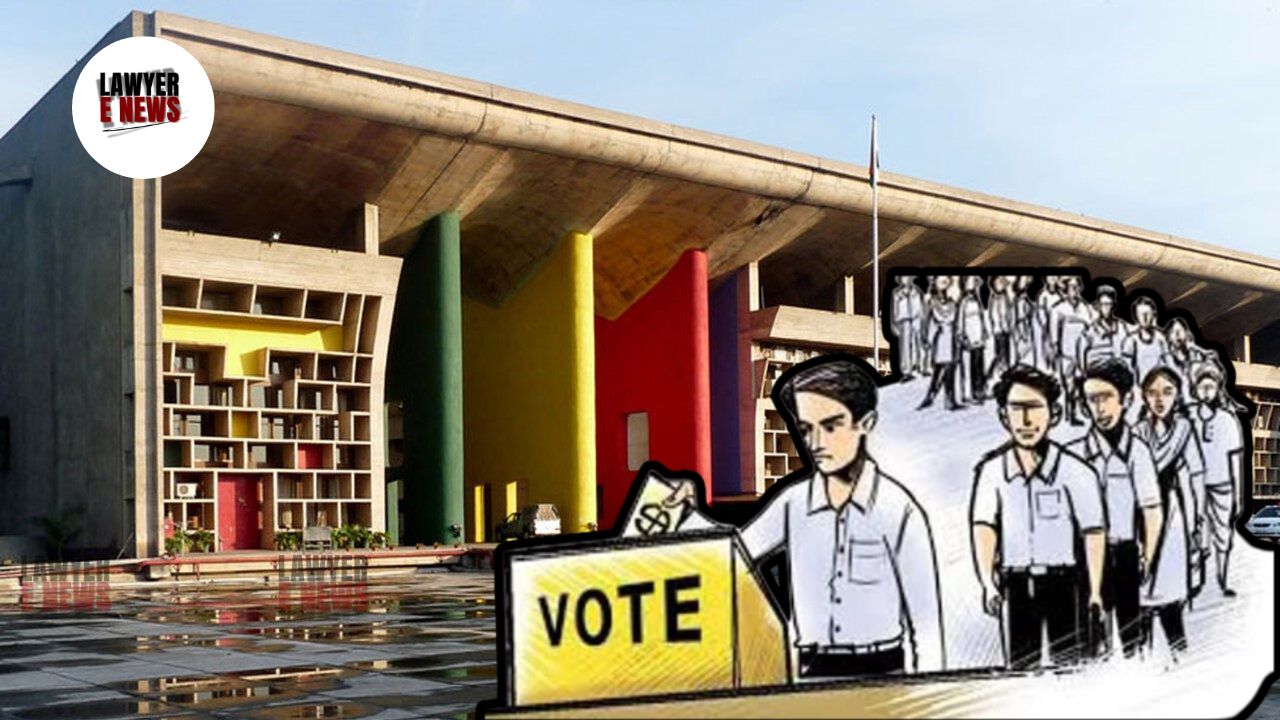-
by Admin
15 February 2026 5:35 AM



Fairness in Local Elections Is the Cornerstone of Democracy: High Court Observes. High Court of Punjab and Haryana passed a significant interim order halting the ongoing election process for the Sarpanch of village Papri. This judgment, delivered in the case titled Ramanjeet Kaur vs. State of Punjab and Others, challenged the eligibility of three candidates contesting for the office of Sarpanch. The petitioner claimed that the respondents were disqualified under the Punjab Panchayati Raj Act, 1994, due to unauthorized occupation of panchayat land.
The High Court’s intervention sends a strong message about maintaining the integrity of local elections, stating that the right to vote is a "statutory right" which must be exercised "without duress or coercion."
The case arose when the petitioner, Ramanjeet Kaur, a resident of village Papri, challenged the eligibility of three respondents contesting the Sarpanch elections, alleging their unauthorized occupation of panchayat land. According to the petitioner, despite submitting her nomination form on October 4, 2024, her name was omitted from the list of eligible candidates published on October 5, 2024. Meanwhile, the respondents were allowed to contest despite not meeting the statutory criteria.
The objections raised by the petitioner and other villagers—citing the respondents' disqualification under Section 208 of the Punjab Panchayati Raj Act, 1994—were allegedly ignored by the Returning Officer.
The main legal issue centered around whether the Returning Officer had appropriately considered the eligibility of the candidates. Under Section 208 of the Punjab Panchayati Raj Act, a person occupying panchayat land without authorization is disqualified from contesting elections. The petitioner argued that the respondents were not eligible due to their continued unauthorized occupation.
Additionally, the petition raised questions about procedural lapses in the scrutiny of nomination papers. The petitioner contended that the Returning Officer failed to provide adequate reasons for rejecting her nomination and ignored the objections submitted against the respondents.
The court, after reviewing the nomination papers and the procedural aspects of the election process, noted that there were serious concerns about the fairness and transparency of the scrutiny process. In its observations, the court emphasized:
"The action of the State of Punjab has not only imposed restrictions on such right of the voters but is also an attempt to destroy the basic structure of our constitution—free and fair elections."
The court pointed out the arbitrary rejection of nomination papers on the grounds that were not substantiated under the Panchayati Raj Act. Specifically, it noted that many candidates' nominations were rejected without valid reasons, and there was a significant failure to address objections raised by the villagers.
The court also remarked on the necessity of adhering to election laws, especially the provisions for contesting eligibility under Section 208. It was highlighted that the Returning Officer's decisions appeared to lack transparency and proper inquiry, which were required by the law.
Consequently, the court stayed the election process for the post of Sarpanch in village Papri and other related cases, pending further investigation into the claims.
The High Court's ruling reflects the importance of free and fair elections, particularly at the local governance level, which forms the foundation of democracy. The court made it clear that the electoral process must be transparent and that any arbitrary disqualification of candidates would be subjected to judicial scrutiny.
Date of Decision: October 9, 2024
Ramanjeet Kaur vs. State of Punjab and Others
Next Hearing Date: October 16, 2024
